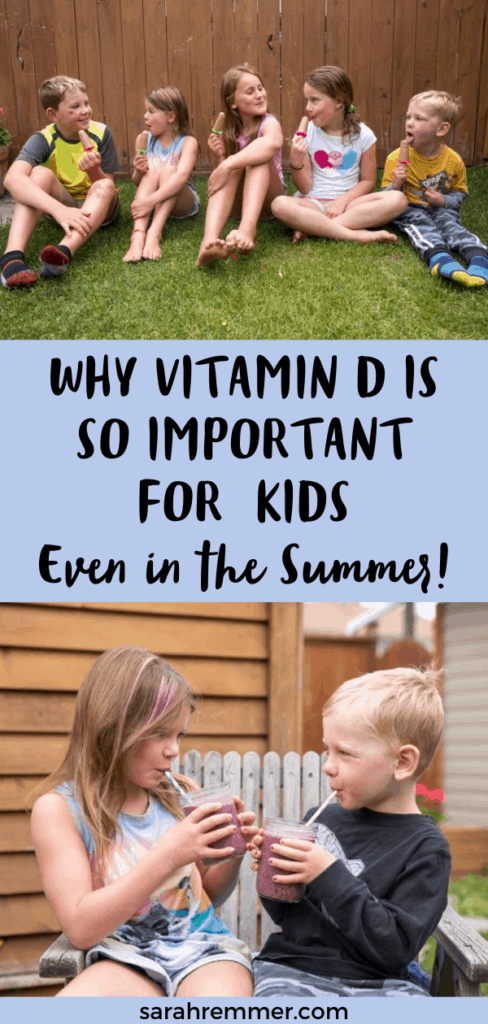This post was written in partnership with Webber Naturals. As always, all opinions are my own!
As a registered dietitian, I get asked random nutrition questions ALL of the time. Everything from “what foods are safe during pregnancy?” to “what if my kid refuses to eat vegetables?!”. But one topic that comes up a lot is vitamin and mineral supplementation, especially when it comes to vitamin D. And quite honestly, it’s one of the first things that I ask my clients about when they come in for nutrition counselling. I want to be sure that they are supplementing with vitamin D AND making sure that they are giving their kids a supplement too.
Webber Naturals wants to help parents establish this routine with its new line of Sesame Street vitamins, including vitamin D. See, vitamin D is one of the only vitamins that I recommend people supplement with daily, across the board—no exceptions! Let me break it down for you…
Here’s what we’ll cover:
What is vitamin D?
Vitamin D is a fat-soluble vitamin that comes in two different forms: vitamin D3, which is found in some animal foods, and vitamin D2 which can be found occasionally in plant foods. D3 is the more effective form when it comes to health.
Vitamin D is not only important for overall health, but for proper growth and development in kids too. It helps our kids’ bodies use the minerals that build strong bones and teeth, including calcium and phosphorous. Studies show it may also help to reduce the risk of chronic disease such as multiple sclerosis and cancer, and is linked to a stronger overall immune system too (hello back to school!)! Vitamin D deficiency has been linked with heart disease, diabetes, dementia, and mortality in general.
Where does vitamin D come from?
Vitamin D is actually made by the body after exposure to the sun. Neat hey?! The natural form is produced under the skin from a certain form of cholesterol–7-dehydrocholesterol. Sunlight hits our skin, and then its ultraviolet B (UVB) energy converts the precursor to vitamin D3. BUT, if you’re lathering your kids up with sunscreen (as you should!) on those hot summer days, that sunscreen is blocking most of those vitamin D–producing UV rays. This means that kids likely aren’t meeting their vitamin D requirements through sun exposure. Not to mention, there are very few good food sources of vitamin D. Vitamin D is not found in many foods; however, you can find it in:
- Cow’s milk
- Fortified soy and rice beverages
- Fortified orange juice
- Fatty fish like salmon and sardines
- Margarine
- Egg yolks
- Fortified yogurts (check the label)

Moral of the story? Because vitamin D is scarcely found in food, not to mention the fact that kids can be super unpredictable with their food intake, it’s important to make sure they take a supplement every day.
Vitamin D and bone health:
The primary role of vitamin D in the body is to help with the absorption of bone-building minerals such as calcium and phosphorous, which help to build and maintain storing bones and teeth. Deficiencies in vitamin D can lead to Rickets in children (softening of bones and bowing of limbs), metabolic bones disease in pre-term infants, and Osteomalacia and Osteoporosis in adults. Now, don’t worry or panic if you haven’t been supplementing your baby or child with vitamin D everyday—it’s common to forget sometimes. Rickets was a huge public health issue in children a long time ago, but thanks to fortification and supplementation of breast-fed babies, there has been a sharp decline in cases and it’s very rare now. BUT because it plays such a huge role in bone health and growth (among other things), and because it’s so hard to obtain enough vitamin D from the sun and/or food, a daily supplement is highly recommended.
Vitamin D and chronic disease prevention
If this vitamin wasn’t powerful enough already, it has also shown to decrease the risk of many chronic diseases such as certain cancers (colorectal cancer, prostate cancer, breast cancer), multiple sclerosis, diabetes, and depression. What’s more is that research has found that low vitamin D levels are also associated with hypertension and higher cardiovascular and all-cause mortality. Need I say more?!

Vitamin D and immune health
Vitamin D increases the body’s production of proteins that kill viruses—this means that it’s immune protective! A landmark meta-analysis published in the British Medical Journal in 2017 looked at 25 studies on vitamin D and respiratory infections (coughs and colds), and researchers found that taking vitamin D supplements was protective against them! Considering what’s going on in the world today, this is important to know! And while you give your child that vitamin D gummy, you can take one (or two) too! This works for us grown-ups as well.
How much vitamin D do babies and kids need?
Infants:
Healthy term infants (birth to one year) who are exclusively or partially breastfed (or formula-fed) require 400IUs of vitamin D per day, while pre-term infants require 400-1000 IUs per day (it’s important to consult with baby’s doctor or dietitian for guidance here). Breastfed or partially breastfed babies should be given a vitamin D supplement of 400 IUs per day (in liquid or droplet form) to ensure they meet their needs, as breastmilk does not provide enough. It’s recommended that formula-fed babies also receive 400 IUs of vitamin D in supplement form as well, because although formula is fortified with vitamin D, formula intake can vary from day to day.
Toddlers and kids:
After the age of one, vitamin D recommendations jump to 600 IUs per day. This means that kids should be getting roughly 200 IUs through food and at least 400 IUs through a supplement. Yep—they still need a supplement throughout childhood (and into adulthood for that matter)! Food intake can vary every day, and because there are so few food sources of vitamin D, a supplement is key. My go-to vitamin D supplement for my kids (they are ages four, seven and nine) is Webber Naturals new Sesame Street Vitamin D gummies. One gummy provides each of my kids with their daily vitamin D intake (600 IUs), which means that they don’t have to eat 3-4 gummies to reach their requirement–just one! My kids think it’s a little treat and as a dietitian mom I can rest easy knowing that they’re getting their vitamin D, and that these supplements are made with natural ingredients, gelatin-free, peanut-free, and have no artificial colours, flavours or preservatives.

Making vitamin D part of your routine
Some families find it hard to remember to take a supplement everyday (on top of everything else!). I’ve made it part of our routine; first thing in the morning right before we brush our teeth. At first, I had to set an alarm on my phone “D TIME” to remind myself, and now my kids remind me! When they have their gummy, I have mine (I take two), and then onwards with our day. Clearly, the benefits of taking vitamin D are endless and quite honestly, Webber Natural’s Sesame Street gummies make it a fun part of the kids day (they’re pretty yummy!). As such, keep them out of reach of your kiddos (vitamin D toxicity can happen, and it’s dangerous—stick to one gummy a day!).
Learn more about how to get your hands on these vitamins at https://webbernaturals.com/en-ca/sesame-street-vitamins/.

source https://betterweightloss.info/why-vitamin-d-is-important-for-kids-all-year-round/


No comments:
Post a Comment